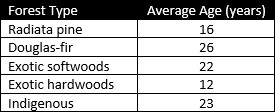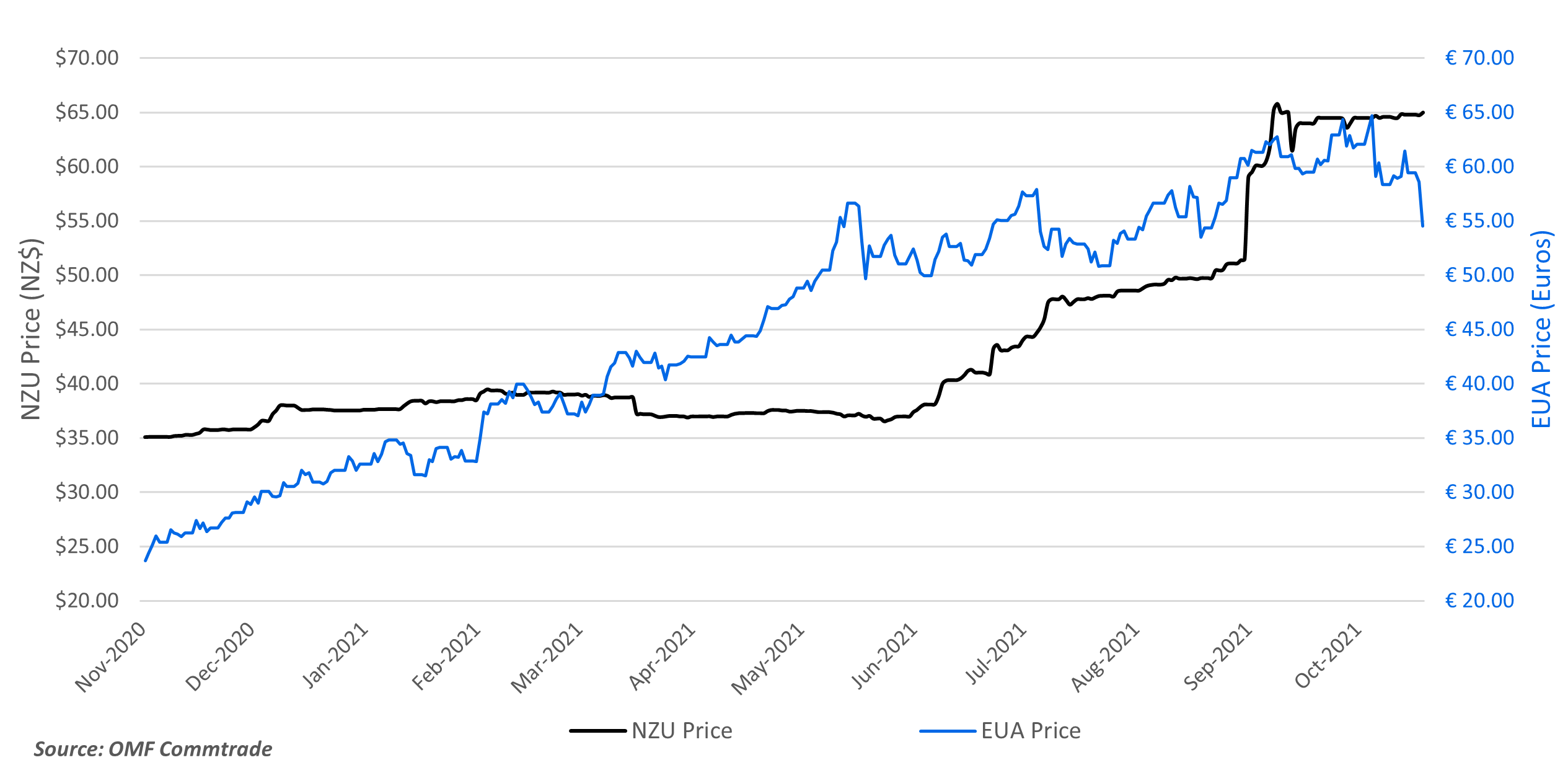Forestry & the Emissions Trading Scheme

Averaging Accounting: government releases more information
Earlier this month the Government released more info on how Averaging accounting will work when it comes into effect in 2023. Some of the key decisions that have been announced:
1. Each forest type will have its own average age, and there will not be a higher average age for those forest owners that choose to grow their forest on longer rotations. The average ages are as follows:

2. Forests harvested before age 10 will have an average age of 3, regardless of forest type.
3. There will be no accounting for second rotation changes to different forest types. This means there will be no ability to claim credits for changing to species that sequester at a higher rate, but conversely no penalty for changing to species that sequester more slowly.
More detailed information is due to be released any day now, including decisions on Temporary Adverse Events and FMA impacts of recent changes, so check here for updates.
Emissions Reduction Plan: Consultation now open
The Emissions Reduction Plan (ERP) will set out how New Zealand will meet its first emissions budget (2022-2025) and set the path towards meeting our long-term climate targets. It is a key step in the country's transition to a low emissions future.
The Ministry for the Environment (MfE) is leading the consultation on what should be included in this plan. Some key questions they pose with respect to forestry include:
- What do you think the Government could do to support new employment and enable employment transitions in rural communities affected by land-use change into forestry?
- What's needed to make it more economically viable to establish and maintain native forest through planting or regeneration on private land?
- What kinds of forests and forestry systems, for example, long-rotation alternative exotic species, continuous canopy harvest, exotic to native transition, should the Government encourage and why?
- Do you think limits are needed, for example, on different permanent exotic forest systems, and their location or management? Why or why not?
- What policies are needed to seize the opportunities associated with forestry while managing any negative impacts?
A number of webinars are planned.
You can find the details, and information on how to make a submission, here.
Innovative carbon capture technology developed by Kiwi company
Aspiring Materials is a new business established with the aim of using Olivine, a common mineral found around the world, to capture industrial-level carbon emissions. The company was started by two professors who developed the technology while working together at the University of Canterbury. They have recently raised $1 million in private investment to develop a pre-pilot phase in commercial facilities. See this Stuff article for more info.
Price update
Following a little volatility reported last month, NZU spot prices stabilised around the $64.50 mark for the past four weeks now. In the last few days, prices have inched up a little with current (27/10) trading at $65.10.

